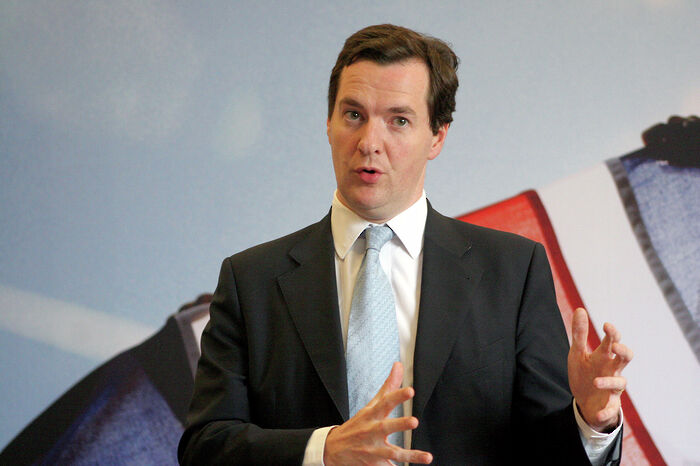Jacob Rees-Mogg is representative, refreshing and real
Harry Clynch argues that Jacob Rees-Mogg’s personality is the key to his popularity
Jacob Rees-Mogg is quickly turning into one of the biggest, and most popular, names in British politics. The Union chamber in which he spoke on Thursday was packed to full capacity; people were queueing for hours beforehand just to get a chance to see the man himself and hear his trademark rhetoric. The Cambridge University Conservative Association (CUCA) event which preceded it easily filled a room seating 250 people, with many, many more turned away. Why is it, then, that this previously relatively obscure backbencher is becoming a prominent (loved, even) figure in the national psyche – and possibly the next British Prime Minister?
I believe the key to Rees-Mogg’s success is his honesty and openness with the electorate, and his willingness to intellectually engage with people in a mature and frank way. Thus, even when the topic is controversial and his views less-than mainstream, those who happen to disagree with him are nonetheless confident that he holds these beliefs in good faith. While Tim Farron did himself and his party severe damage by refusing to clarify his religiously justified views on gay sex, Rees-Mogg, in a similar situation regarding abortion, was extremely candid in admitting he struggles to reconcile a woman’s desire to abort with his fundamental theological belief that life starts at the point of conception. The result of this honesty is that even those who do not align with him on these moral issues – including myself – can still at least appreciate his reasoning and the religious basis upon which it is founded.
“He is bred from that traditional, paternalistic, One Nation Toryism which is morally driven to help those not bestowed with the same privileges”
We must not underestimate the extent to which his personality contributes to his popularity. Yes, he is a member of the British aristocracy, educated at both Eton and Oxford. But, crucially, unlike previous Tory politicians – notably, the Cameroons – he is not embarrassed about his upbringing, and indeed, on the contrary, fully embraces his true character. Whether that is his tweets in Latin, his indulgence in the floccinaucinihilipilification of the European judges, or his reminiscences on being brought up by Nanny, he accepts the stereotypes, plays on them, and uses them to his advantage. His sincere, authentic and genuine nature adds a warmth and depth to his character – something people inarguably admire in politicians.
Some on the left sometimes try to use Rees-Mogg’s privilege as a charge, in itself, against him. This charge does not stand up to any scrutiny. After all, he has openly admitted how lucky he was to be born into wealth, and, despite the three-piece suits, I do not believe he has ever appeared snobbish in any way. His recognition of just how fortunate he is has shaped his politics for the better: he is bred from that traditional, paternalistic, One Nation Toryism which is morally driven to help those not bestowed with the same privileges. As he said at the Union, his motivation for wanting to leave the customs union is improving the poorest in society’s standard of living, by removing the burden of the Common External Tariff which drives up the cost of essential goods. You may disagree with the means, but his aims and motivations – helping those less fortunate – for me, are unquestionable.
Moreover, this Eton and Oxford man is in fact much more in touch than many of the people who criticise him. On the most fundamental social and political issue of our time – Brexit – he is more aligned with much of the working-class than almost the entirety of the parliamentary Labour Party. Unlike Labour, which has become a liberal, metropolitan party which revolving around Islington, Rees-Mogg understands, and agrees with, people’s concerns over uncontrolled immigration and their desire for self-government. Compare this to somebody like Emily Thornberry, who cannot even bear the sight of Saint George’s Cross, and it is clear who is more representative of the population at large.
These factors – his honesty, his personality, his politics – are the most significant factors behind ‘Moggmentum’. And though it still remains unlikely that Moggmentum will propel him into Downing Street, he nonetheless has the potential to become one of the most influential Conservative politicians in the House of Commons. While he might, with his trademark modesty, claim that “popularity in politics is very much here today and gone tomorrow,” Jacob Rees-Mogg is not going anywhere any time soon
 News / Eight Cambridge researchers awarded €17m in ERC research grants27 December 2025
News / Eight Cambridge researchers awarded €17m in ERC research grants27 December 2025 News / Downing investigates ‘mysterious’ underground burial vault 29 December 2025
News / Downing investigates ‘mysterious’ underground burial vault 29 December 2025 Sport / Hard work, heartbreak and hope: international gymnast Maddie Marshall’s journey 29 December 2025
Sport / Hard work, heartbreak and hope: international gymnast Maddie Marshall’s journey 29 December 2025 News / News in Brief: carols, card games, and canine calamities28 December 2025
News / News in Brief: carols, card games, and canine calamities28 December 2025 Lifestyle / Ask Auntie Alice29 December 2025
Lifestyle / Ask Auntie Alice29 December 2025







